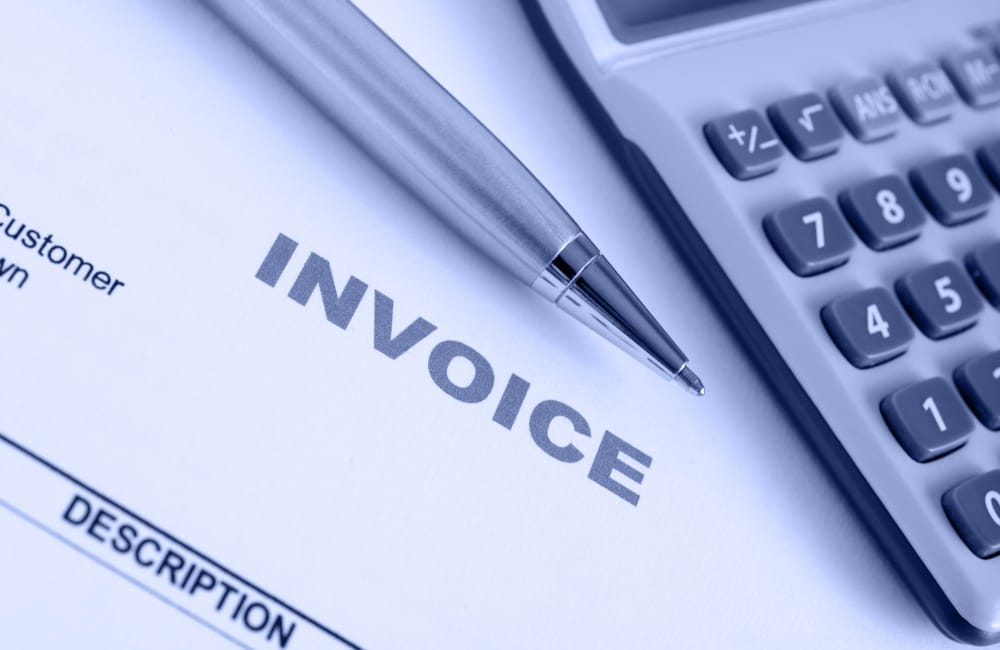How to Handle Unpaid Invoices: A Comprehensive Guide for Small Business Owners

As a small business owner or freelancer, managing unpaid invoices can be one of the most frustrating and challenging aspects of running your business. Late payments can severely disrupt your cash flow, affecting your ability to meet your financial obligations. However, with the right strategies, you can mitigate the risks and recover the money owed to you. This guide provides actionable tips on how to manage unpaid invoices effectively.
1. Regularly Review and Improve Your Invoicing Process
The first step in preventing late payments is to ensure that your invoicing process is efficient and professional. Here are some key practices to follow:
- Send invoices promptly: Always send your invoices immediately after completing the work or delivering a product. The sooner you send an invoice, the sooner you can expect payment.
- Clear and detailed invoices: Make sure your invoices are easy to understand, including a breakdown of services, total amount due, and your payment terms. Clearly state the payment due date and any late fees that may apply.
- Set clear payment terms: Be explicit about when payments are due, and consider offering incentives for early payments or penalties for late ones. Common payment terms include 30 days, but you can adjust this based on your needs.
Automating your invoicing process can also save you time and reduce errors. Use accounting software like Xero, QuickBooks, or FreshBooks to streamline invoice generation and send automatic reminders.
2. Follow Up Promptly on Overdue Payments
It’s crucial not to wait too long before chasing unpaid invoices. Once the due date passes, act quickly to follow up. Here are some steps to consider:
- Automated reminders: Many accounting tools allow you to set up automatic reminders for overdue invoices. These can be sent via email at pre-defined intervals to keep the invoice on your client’s radar.
- Personal follow-up: If automated reminders don’t work, send a personal email or make a phone call. Remain polite but assertive, emphasizing the importance of timely payment and offering to discuss any issues that might be causing the delay.
The Small Business Commissioner recommends starting by sending a gentle reminder shortly after the due date, followed by a stronger email or call if payment is still not received .
3. Understand Your Legal Rights: Charge Interest on Late Payments
In the UK, businesses have the legal right to charge interest on overdue invoices, which can serve as a deterrent for late payments. The law allows businesses to charge statutory interest at 8% plus the Bank of England’s base rate for business-to-business transactions. You can also claim compensation for debt recovery costs, depending on the size of the debt .
For example:
- If the amount owed is up to £999.99, you can claim £40.
- For debts between £1,000 and £9,999.99, you can claim £70.
- For debts over £10,000, you can claim £100.
Charging interest is not mandatory, but it’s a useful tool to protect your business from prolonged delays.
4. Communicate Assertively but Professionally
When reminders fail to yield results, it's time to be more assertive in your communications:
- Send a formal letter: Write a formal letter outlining the overdue invoice, payment terms, and any late fees or interest that apply. Offer a deadline by which the client should settle the account to avoid further escalation.
- Make direct contact: In some cases, a phone call can be more effective than emails or letters. Speak directly to the person responsible for payments and calmly explain the consequences of non-payment.
Open and professional communication can often lead to quick resolutions, as clients may have overlooked the invoice or encountered unexpected cash flow issues.
5. Consider Legal Action if Necessary
If your client continues to ignore your attempts to collect payment, it may be time to consider legal action. However, this should be a last resort after all other avenues have been explored. The UK offers several legal routes for recovering unpaid invoices:
- Small Claims Court: For smaller debts (up to £10,000), you can take your case to the small claims court. It’s a relatively straightforward and cost-effective process.
- Statutory Demand: If the debt is over £750, you can issue a statutory demand. If the debt is not paid within 21 days, you can proceed with a winding-up petition or bankruptcy claim.
- Mediation: Before heading to court, you can try mediation to reach a settlement with the client. The Small Business Commissioner offers free dispute resolution services that can help you reach an agreement without going to court .
Taking legal action can strain client relationships, so weigh the costs and potential benefits carefully before pursuing this option.
6. Hire a Debt Collection Agency
If all else fails, engaging a professional debt collection agency might be necessary to recover your unpaid invoices. While this comes with a cost, agencies can often recover overdue debts that you cannot. Most debt collection agencies operate on a no-win, no-fee basis, but be mindful that this can damage your relationship with the client.
Ensure you hire a reputable agency, and only consider this as a final option if other approaches have not worked.
7. Plan for Future Cash Flow Issues
To avoid serious financial strain from late payments, it’s essential to build a financial contingency plan. Here are some strategies:
- Create an emergency fund: Set aside a portion of your income each month to cover unexpected expenses or delays in payment. This will help you stay afloat if you encounter cash flow problems.
- Diversify your client base: Avoid relying too heavily on a single client or project. By working with multiple clients, you reduce the risk of a significant portion of your income being delayed.
By having a backup plan in place, you can better manage the impact of unpaid invoices on your business.
8. Build Strong Client Relationships
One of the best ways to prevent late payments is by fostering strong relationships with your clients. Building trust and maintaining open lines of communication can often prevent payment issues before they arise.
- Set expectations from the start: Be clear about your payment terms when you take on a new client. Discuss payment schedules and late fees upfront.
- Maintain regular contact: Stay in touch with clients throughout the project, and don’t hesitate to raise concerns if a payment seems delayed.
When you have a good working relationship, clients are more likely to prioritize paying you on time.
By following these strategies, you can significantly reduce the stress and financial burden of unpaid invoices. Proactive invoicing, clear communication, and understanding your legal rights will help you maintain a steady cash flow and protect your business from the risks of late payments.
For more in-depth advice, visit the Small Business Commissioner and the UK Government’s guidance on late payments. Additionally, explore legal options for recovering unpaid invoices on the Small Business Commissioner’s website.
